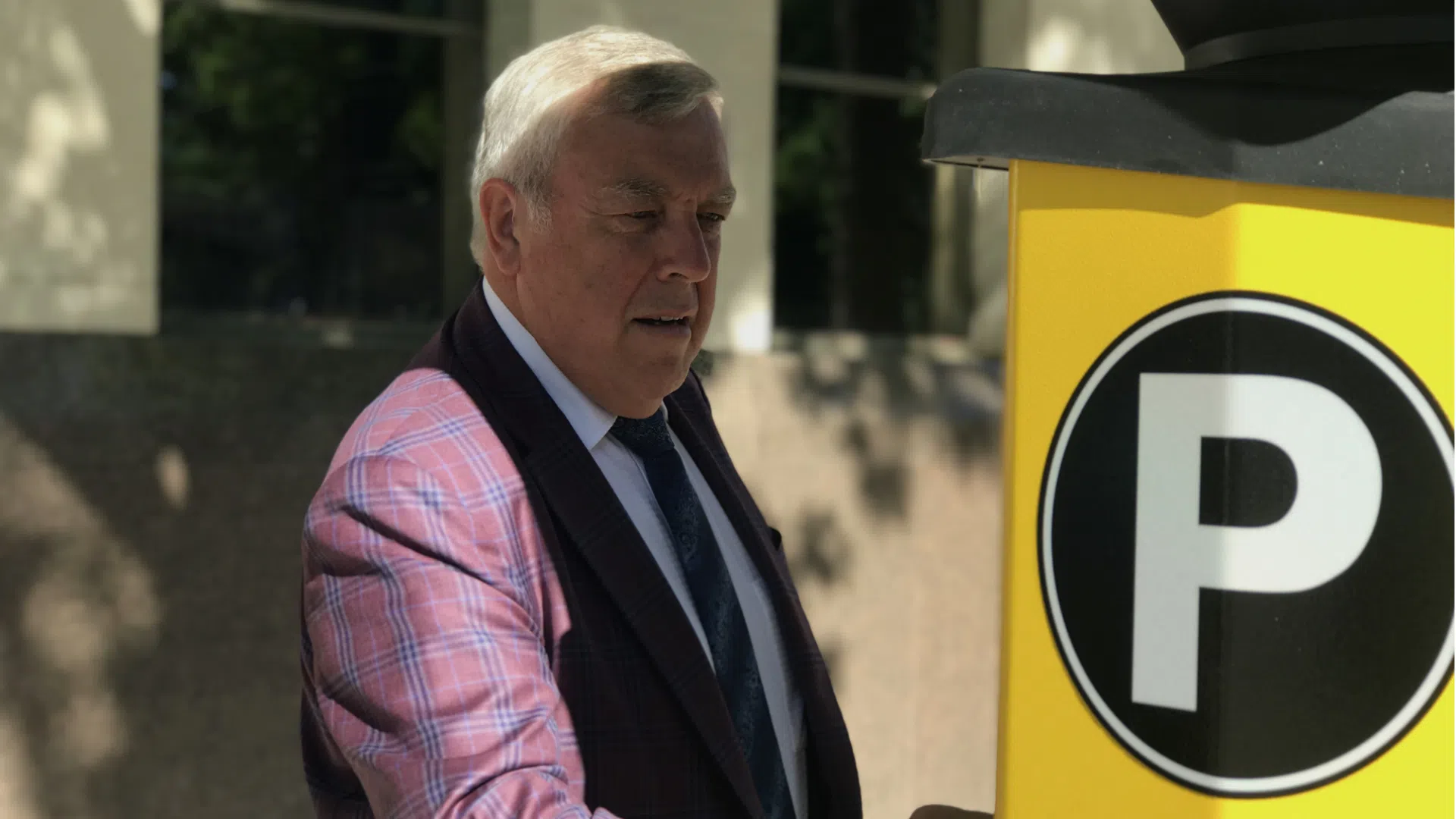
Drivers, enforcement officers face learning curve on new parking system
LETHBRIDGE – It’s going to be a learning curve for the public – and for the people who write tickets – now that Lethbridge’s new downtown parking system has taken effect.
As of Monday, May 28 the bright-yellow kiosks have replaced the old meters that were located at each parking space. Drivers will now have to take note of what zone they’re parked in, enter their zone and licence plate number at a kiosk, and pay with cash or a credit card. The zones are numbered based on offering two, three, or ten hours of parking.
The machines don’t take Interac debit cards, something Mayor Chris Spearman only learned when he attempted to use the new machine.
“That surprised me. I’m not sure what the future of that is, but it would be great to take debit cards as well as credit cards,” Spearman told reporters.


